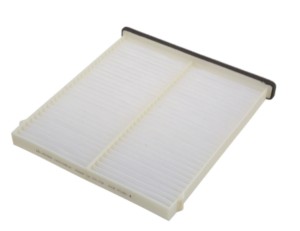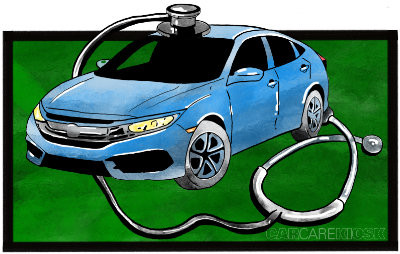How Do I Know If My Car Recall Was Fixed
Has your vehicle been subject to a recall, and are you wondering, how do I know if my car recall was fixed? Determining whether a car recall has been addressed is crucial for ensuring your safety and the longevity of your vehicle. At CARDIAGTECH.NET, we’ll guide you through the process of confirming that recall repairs have been completed, offering peace of mind and safeguarding against potential hazards. You will learn about recall repair verification, VIN lookup, and automotive safety checks.
1. Understanding Car Recalls
A car recall is issued when a vehicle manufacturer or the National Highway Traffic Safety Administration (NHTSA) determines that a vehicle or equipment component has a safety-related defect or does not meet federal safety standards. Recalls are intended to address issues that could cause accidents, injuries, or even fatalities.
1.1. Types of Car Recalls
- Safety Recalls: These address defects that pose a significant safety risk to drivers, passengers, or other road users.
- Non-Safety Recalls: These involve issues that do not directly affect safety but may impact vehicle performance, durability, or emissions.
1.2. Manufacturer Responsibilities
When a recall is issued, the vehicle manufacturer is responsible for:
- Notifying registered owners of the affected vehicles.
- Providing a remedy for the defect, free of charge to the owner.
- Ensuring that dealerships have the necessary parts and expertise to perform the repairs.
According to NHTSA, manufacturers must notify vehicle owners of recalls within 60 days of identifying a safety defect.
2. Initial Notification of a Recall
2.1. Receiving a Recall Notice
Typically, the first indication of a recall is a notification sent by mail from the vehicle manufacturer. This notice will include:
- A description of the defect or issue.
- Potential risks associated with the defect.
- Instructions on how to get the vehicle repaired.
- The recall campaign number.
2.2. Updating Your Contact Information
To ensure you receive recall notices, it is crucial to keep your contact information up-to-date with the vehicle manufacturer. If you purchased a used car, the manufacturer may not have your details. You can update your information through the manufacturer’s website or by contacting their customer service department.
3. Verifying a Recall Repair
3.1. Using the NHTSA VIN Lookup Tool
The NHTSA provides a free online tool that allows you to check for open recalls on your vehicle using its Vehicle Identification Number (VIN). This is the most reliable method for determining whether a recall has been issued and if the necessary repairs have been completed.
Step-by-Step Guide:
- Locate Your VIN: The VIN is a 17-character alphanumeric code typically found on the driver’s side dashboard, inside the driver’s side doorjamb, or on your vehicle’s registration and insurance documents.
- Visit the NHTSA Website: Go to the NHTSA VIN Lookup Tool.
- Enter Your VIN: Type your VIN into the search box and click “Search.”
- Review the Results: The tool will display any open recalls for your vehicle. If the recall has been completed, it should be noted in the results.
3.2. Contacting Your Dealership
Another way to verify a recall repair is to contact your local dealership. Provide them with your VIN, and they can check their service records to see if the recall repair has been performed on your vehicle.
Benefits of Contacting a Dealership:
- Access to detailed service records.
- Ability to schedule a follow-up inspection if needed.
- Expert advice on any related issues.
3.3. Reviewing Service Records
If you have had the recall repair done, review your service records to ensure that the repair is listed. The service record should include:
- The recall campaign number.
- A description of the work performed.
- The date the repair was completed.
- The name and signature of the technician who performed the repair.
4. What to Do If a Recall Repair Has Not Been Completed
4.1. Scheduling a Repair
If the NHTSA VIN Lookup Tool or your dealership confirms that a recall repair has not been completed, you should schedule an appointment with an authorized dealership as soon as possible. Recall repairs are performed free of charge.
Tips for Scheduling a Repair:
- Contact the dealership’s service department to schedule an appointment.
- Provide your VIN and the recall campaign number.
- Inquire about the estimated repair time and any loaner vehicle options.
4.2. Understanding Your Rights
As a vehicle owner, you have the right to have recall repairs performed promptly and free of charge. If you encounter any issues with getting a recall repair completed, you can contact the NHTSA Vehicle Safety Hotline for assistance.
4.3. Documenting Your Efforts
Keep a record of all communications with the manufacturer and dealership, including dates, names, and the content of conversations. This documentation can be helpful if you need to escalate the issue.
5. Potential Issues and Solutions
5.1. Parts Availability
Sometimes, parts needed for a recall repair may not be readily available. This can cause delays in getting the repair completed.
Solutions:
- Inquire about the estimated wait time for parts.
- Ask the dealership to notify you as soon as the parts become available.
- Check if the manufacturer offers any interim solutions or loaner vehicles while you wait.
5.2. Dealership Cooperation
In rare cases, a dealership may be uncooperative or refuse to perform a recall repair.
Solutions:
- Contact the manufacturer’s customer service department to report the issue.
- Seek assistance from the NHTSA Vehicle Safety Hotline.
- Consider taking your vehicle to another authorized dealership.
5.3. Prior Repairs
If you had the problem addressed by the recall repaired before the recall was announced, you may be eligible for reimbursement from the manufacturer.
Steps to Claim Reimbursement:
- Gather all relevant documentation, including repair invoices, diagnostic reports, and payment records.
- Contact the manufacturer’s customer service department to inquire about the reimbursement process.
- Submit your claim along with the required documentation.
- Follow up with the manufacturer to check on the status of your claim.
6. Checking for Recalls Before Buying a Used Car
6.1. Importance of Checking
Before purchasing a used car, it is essential to check for any open recalls. This can help you avoid buying a vehicle with potentially dangerous defects.
6.2. Using the NHTSA VIN Lookup Tool
Use the NHTSA VIN Lookup Tool to check the vehicle’s recall history. This will provide information on any open recalls and whether they have been completed.
6.3. Independent Inspections
Consider having a qualified mechanic perform a pre-purchase inspection to identify any potential issues, including those related to recalls.
7. Staying Informed About New Recalls
7.1. Subscribing to Recall Alerts
You can subscribe to recall alerts from the NHTSA and vehicle manufacturers to stay informed about any new recalls affecting your vehicle.
7.2. Monitoring Automotive News
Keep an eye on automotive news and industry publications for announcements of new recalls.
7.3. Regular VIN Checks
Periodically check your VIN using the NHTSA VIN Lookup Tool to ensure that no new recalls have been issued for your vehicle.
8. The Role of CARDIAGTECH.NET in Automotive Safety
At CARDIAGTECH.NET, we are committed to promoting automotive safety by providing high-quality diagnostic tools and equipment for vehicle maintenance and repairs. Our products can help technicians identify and address potential issues, including those related to recalls, ensuring that vehicles are safe and reliable.
8.1. Diagnostic Tools
Our range of diagnostic tools includes:
-
OBD-II Scanners: These tools can read and clear diagnostic trouble codes, providing valuable information about vehicle issues.
-
Advanced Diagnostic Systems: These comprehensive systems offer in-depth diagnostics, including access to manufacturer-specific data and repair procedures.
Alt: CARDIAGTECH OBD-II Scanner displaying diagnostic information.
8.2. Equipment for Recall Repairs
We also offer a variety of equipment essential for performing recall repairs, such as:
- Specialty Tools: These tools are designed for specific repair tasks and can help technicians complete recall repairs efficiently and accurately.
- Safety Equipment: We provide safety gear, including gloves, eye protection, and respirators, to protect technicians during recall repairs.
8.3. Training and Support
CARDIAGTECH.NET is dedicated to providing training and support to help technicians stay up-to-date with the latest repair procedures and diagnostic techniques. Our resources include:
- Online Training Courses: These courses cover a wide range of topics, including recall repair procedures and diagnostic techniques.
- Technical Support: Our team of experts is available to provide technical assistance and answer any questions you may have.
9. Why Choose CARDIAGTECH.NET for Your Automotive Needs
9.1. Quality Products
We offer only the highest quality diagnostic tools and equipment from trusted manufacturers. Our products are designed to meet the needs of professional technicians and DIY enthusiasts alike.
9.2. Competitive Prices
We offer competitive prices on all of our products, ensuring that you get the best value for your money.
9.3. Excellent Customer Service
Our customer service team is dedicated to providing exceptional support and assistance. We are here to answer your questions and help you find the right products for your needs.
9.4. Fast Shipping
We offer fast shipping on all orders, so you can get the tools and equipment you need quickly and easily.
10. Addressing Common Misconceptions About Car Recalls
10.1. “Recalls Only Affect Old Cars”
This is a common misconception. Recalls can affect vehicles of any age, including brand-new models. Recalls are issued when a defect is discovered, regardless of how long the vehicle has been on the road.
10.2. “Recalls Are Just Minor Inconveniences”
While some recalls address minor issues, many recalls involve safety-related defects that can increase the risk of accidents, injuries, or even fatalities. It is essential to take all recalls seriously and get the necessary repairs completed promptly.
10.3. “I Don’t Need to Worry About Recalls If I Bought My Car Used”
Even if you bought your car used, you are still eligible to receive recall notices and get the problem fixed free of charge. The manufacturer is responsible for addressing the defect, regardless of who owns the vehicle.
10.4. “Recalls Are the Same as Warranties”
Recalls and warranties are different. A warranty covers repairs for a specific period or mileage, while a recall addresses a safety-related defect or non-compliance with federal safety standards. Recall repairs are performed free of charge, regardless of whether the vehicle is still under warranty.
11. Advanced Techniques for Ensuring Recall Repairs
11.1. Using Advanced Diagnostic Tools to Verify Repairs
Modern diagnostic tools can do more than just read trouble codes. They can also be used to verify that recall repairs have been performed correctly and that the vehicle is functioning as intended.
Example:
- Actuation Tests: These tests can be used to activate specific components and verify that they are working properly after a recall repair.
- Data Logging: Diagnostic tools can log data from various sensors and systems, allowing technicians to monitor vehicle performance and identify any remaining issues.
11.2. Consulting Technical Service Bulletins (TSBs)
Technical Service Bulletins (TSBs) are issued by vehicle manufacturers to provide technicians with information about common problems, repair procedures, and diagnostic tips. TSBs can be a valuable resource for ensuring that recall repairs are performed correctly.
11.3. Staying Updated with Industry News
The automotive industry is constantly evolving, with new technologies and repair techniques being developed all the time. Staying updated with industry news and attending training events can help technicians stay ahead of the curve and provide the best possible service.
12. The Future of Car Recalls
12.1. Over-the-Air (OTA) Updates
As vehicles become more connected and software-driven, over-the-air (OTA) updates are becoming increasingly common. OTA updates allow manufacturers to address certain types of recalls remotely, without requiring vehicle owners to visit a dealership.
Benefits of OTA Updates:
- Convenience: Vehicle owners can receive updates without having to schedule a service appointment.
- Speed: OTA updates can be deployed quickly, addressing safety issues more rapidly.
- Cost-Effectiveness: OTA updates can reduce the cost of recalls for manufacturers and vehicle owners.
12.2. Predictive Analytics
Predictive analytics involves using data to identify potential safety issues before they lead to recalls. By analyzing data from vehicle sensors, customer complaints, and other sources, manufacturers can identify patterns and trends that may indicate a developing problem.
Benefits of Predictive Analytics:
- Early Detection: Predictive analytics can help manufacturers identify safety issues before they become widespread.
- Proactive Solutions: Manufacturers can develop and implement solutions to address potential safety issues before recalls are necessary.
- Improved Safety: Predictive analytics can help improve vehicle safety and reduce the risk of accidents and injuries.
12.3. Enhanced Communication
Manufacturers are increasingly using digital channels to communicate with vehicle owners about recalls. This includes email, text messages, and mobile apps. These channels can provide real-time updates and information about recalls, making it easier for vehicle owners to stay informed.
13. Practical Scenarios and Solutions
13.1. Scenario: Recall Notice Received, But Vehicle Was Already Repaired
Problem: You receive a recall notice for an issue that you already had repaired.
Solution:
- Gather Documentation: Collect all relevant documentation, including repair invoices, diagnostic reports, and payment records.
- Contact Manufacturer: Contact the vehicle manufacturer’s customer service department to inquire about reimbursement.
- Submit Claim: Submit your claim along with the required documentation.
- Follow Up: Follow up with the manufacturer to check on the status of your claim.
13.2. Scenario: Dealership Refuses to Perform Recall Repair
Problem: A dealership refuses to perform a recall repair on your vehicle.
Solution:
- Contact Manufacturer: Contact the vehicle manufacturer’s customer service department to report the issue.
- Seek NHTSA Assistance: Contact the NHTSA Vehicle Safety Hotline for assistance.
- Alternative Dealership: Consider taking your vehicle to another authorized dealership.
13.3. Scenario: Parts Are Not Available for Recall Repair
Problem: Parts needed for a recall repair are not readily available.
Solution:
- Inquire About Wait Time: Inquire about the estimated wait time for parts.
- Request Notification: Ask the dealership to notify you as soon as the parts become available.
- Interim Solutions: Check if the manufacturer offers any interim solutions or loaner vehicles while you wait.
14. Conclusion: Ensuring Your Vehicle’s Safety
Ensuring that car recalls are addressed promptly and effectively is crucial for maintaining your vehicle’s safety and reliability. By following the steps outlined in this guide, you can verify that recall repairs have been completed and take appropriate action if they have not. Remember to stay informed about new recalls, keep your contact information up-to-date, and utilize the resources available from the NHTSA and vehicle manufacturers.
At CARDIAGTECH.NET, we are committed to providing the tools, equipment, and support you need to keep your vehicle running safely and efficiently. Explore our range of diagnostic tools and equipment to ensure your vehicle is in top condition.
Is your garage equipped with the right tools to handle car recalls effectively? Contact CARDIAGTECH.NET at 276 Reock St, City of Orange, NJ 07050, United States, or reach out via WhatsApp at +1 (641) 206-8880 for expert advice and the best equipment solutions. Ensure every repair is precise and efficient, keeping your clients safe and satisfied. Visit CARDIAGTECH.NET today and elevate your service standards!
15. FAQ: Addressing Common Questions About Car Recalls
15.1. How do I find out if my car has a recall?
Use the NHTSA VIN Lookup Tool or contact your local dealership with your VIN to check for open recalls.
15.2. Are recall repairs free?
Yes, recall repairs are performed free of charge by authorized dealerships.
15.3. What if I already paid for a repair that is now under recall?
You may be eligible for reimbursement from the vehicle manufacturer. Contact their customer service department to inquire about the process.
15.4. How long does a recall repair take?
The repair time varies depending on the nature of the recall and the complexity of the repair. Your dealership can provide an estimate when you schedule the appointment.
15.5. Can I take my car to any mechanic for a recall repair?
No, recall repairs must be performed by an authorized dealership to ensure they are done correctly and to maintain the manufacturer’s liability.
15.6. What happens if I ignore a recall notice?
Ignoring a recall notice can put you and your passengers at risk. The defect could lead to an accident, injury, or even fatality. It is essential to get the recall repair completed as soon as possible.
15.7. How long do I have to get a recall repair done?
There is no time limit for getting a recall repair done. However, it is best to get the repair completed as soon as possible to minimize the risk of an accident or injury.
15.8. What if I lost my recall notice?
You can still check for open recalls using the NHTSA VIN Lookup Tool or by contacting your local dealership.
15.9. Can a recall affect my car’s warranty?
No, a recall does not affect your car’s warranty. Recall repairs are performed free of charge, regardless of whether the vehicle is still under warranty.
15.10. What if I am not the original owner of the car?
You are still eligible to receive recall notices and get the problem fixed, regardless of whether you are the original owner of the car.





